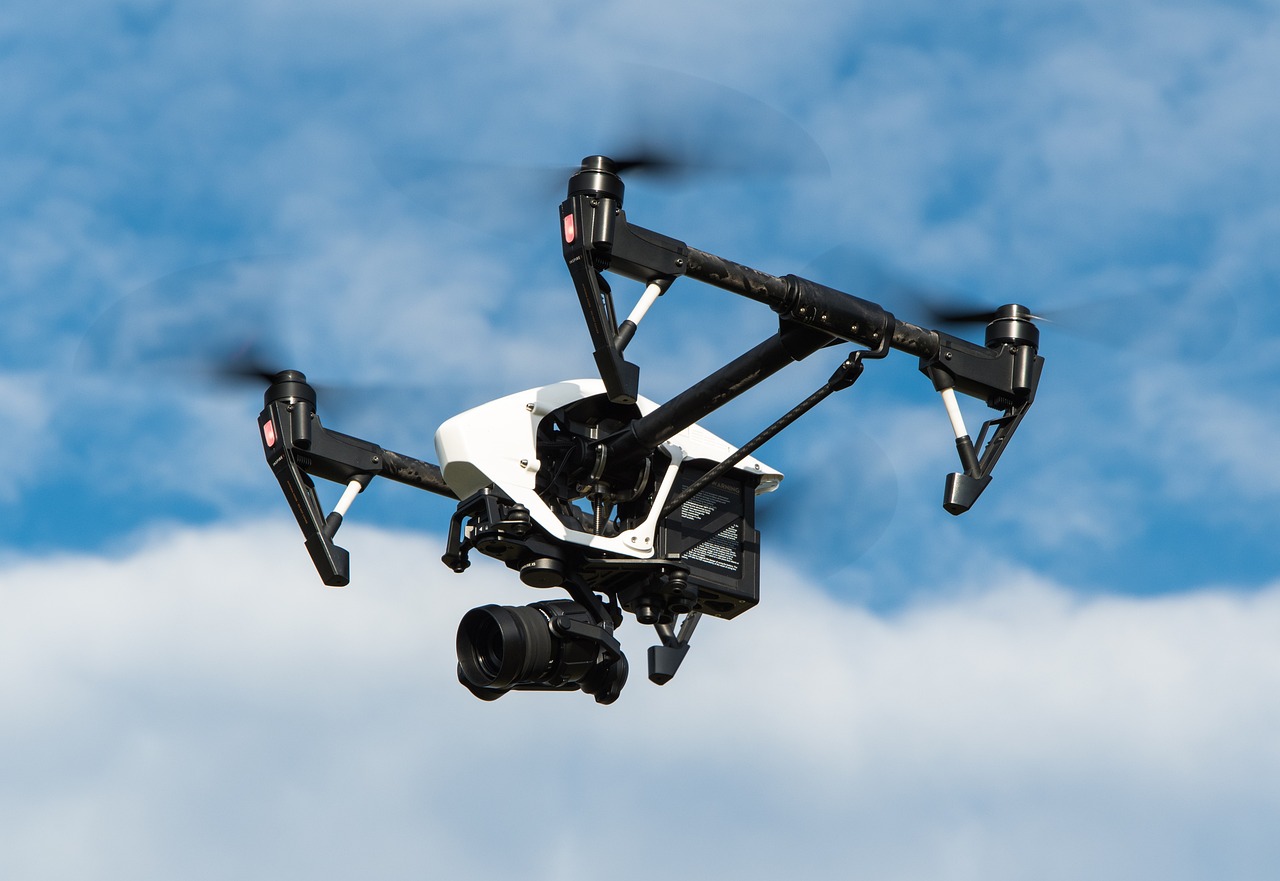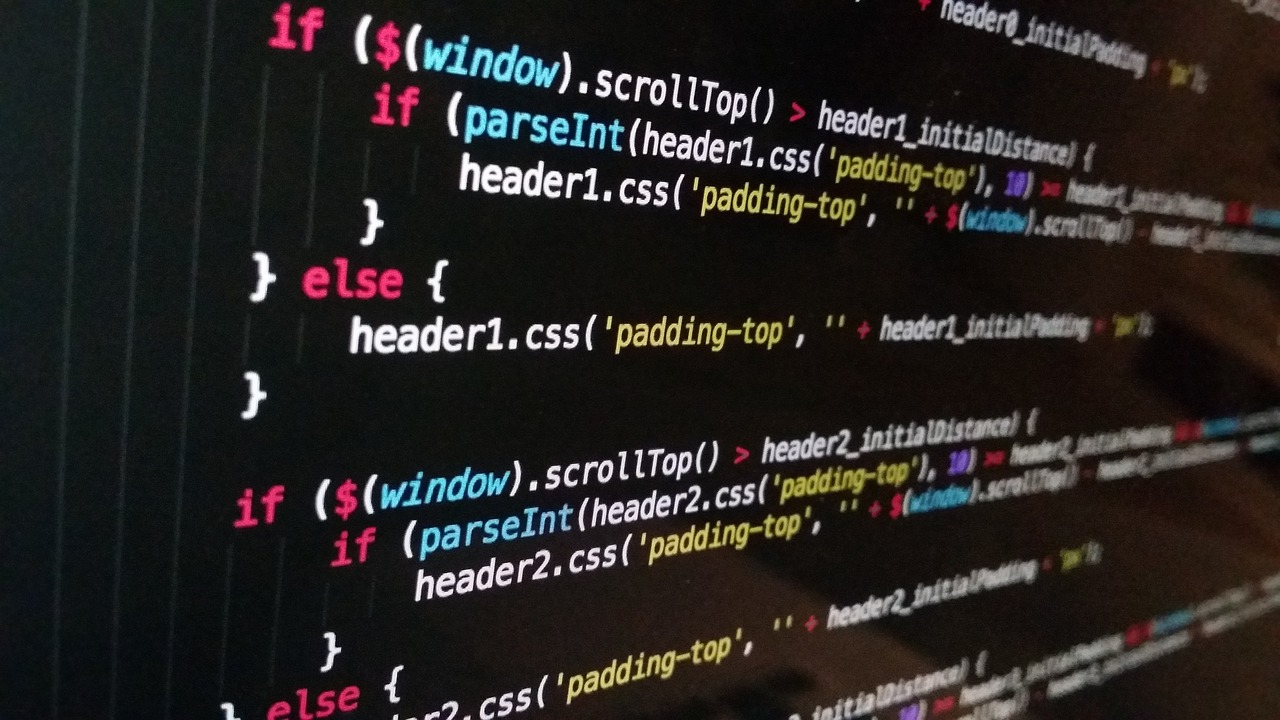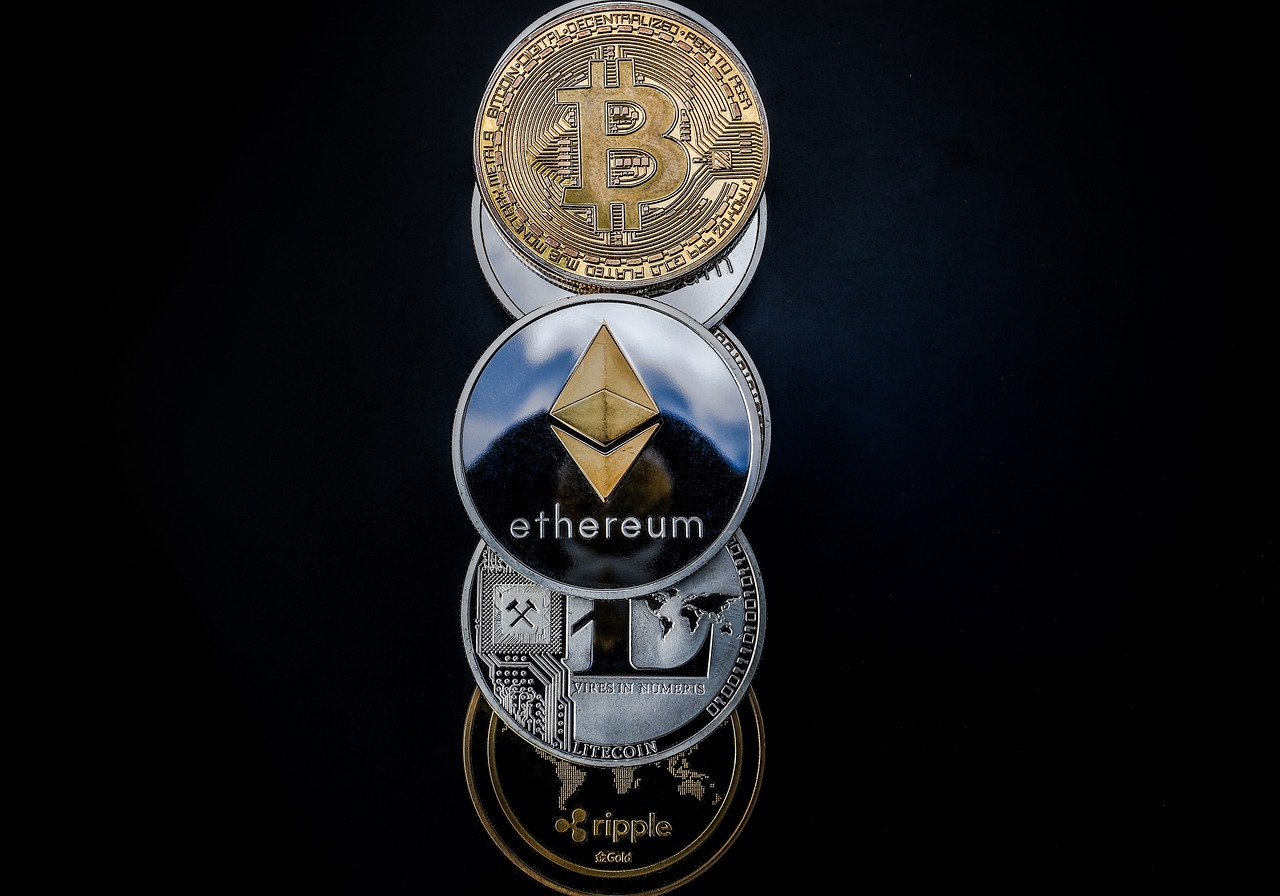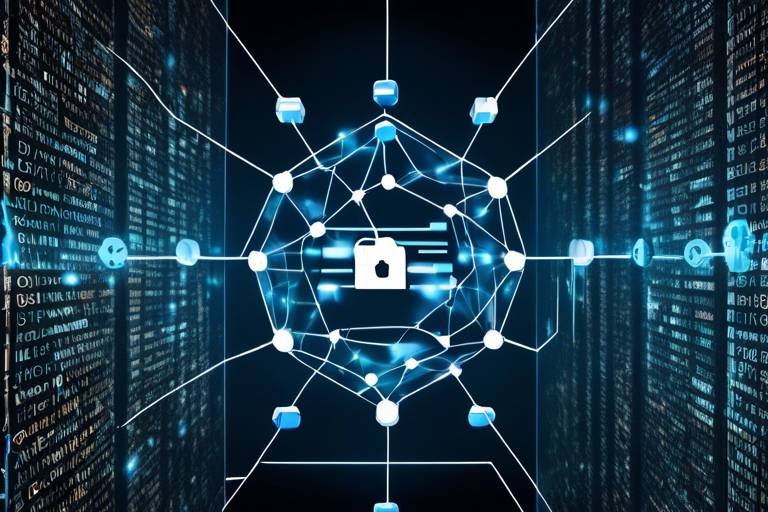How Blockchain is Enhancing Data Privacy for Users
In today's digital landscape, where our personal information is akin to gold, the need for robust data privacy has never been more pressing. The rise of blockchain technology is reshaping how we think about data security and user privacy. Imagine a world where your sensitive information is locked away in a vault that only you can access. That’s the promise of blockchain! By decentralizing data storage and employing cryptographic techniques, blockchain offers a transformative approach that empowers users while keeping their information secure. In this article, we will explore the multifaceted ways in which blockchain enhances data privacy, from its core principles to its real-world applications.
Understanding the core principles of blockchain technology is essential. At its heart, blockchain is a decentralized ledger that records transactions across many computers. This means that there is no single point of failure or control, which is a significant departure from traditional centralized systems. Each transaction is secured using cryptographic algorithms, making it nearly impossible for unauthorized parties to access or alter data. Imagine a chain of blocks, where each block contains a list of transactions, a timestamp, and a unique hash of the previous block. This structure not only ensures transparency but also enhances data privacy by allowing users to maintain control over their information.
In an era where personal information is constantly at risk, several challenges threaten data privacy. High-profile data breaches, unauthorized access to personal accounts, and the exploitation of centralized databases are just a few of the issues users face. Centralized systems are particularly vulnerable because they store vast amounts of data in one location, making them attractive targets for cybercriminals. As we navigate through this digital jungle, it becomes clear that traditional methods of data protection are no longer sufficient. This is where blockchain steps in to offer a new paradigm for securing personal information.
One of the standout features of blockchain is its immutable ledger, which plays a crucial role in ensuring data integrity. When data is recorded on a blockchain, it becomes part of a permanent record that cannot be altered or deleted without consensus from the network. This characteristic is akin to writing in ink rather than pencil—once it's there, it’s there for good! Each transaction is verified by multiple nodes in the network, which prevents tampering and unauthorized alterations. This level of security is a game-changer for industries that rely on accurate and trustworthy data.
Smart contracts are another exciting application of blockchain technology that enhances user privacy. These self-executing contracts automate processes while ensuring that personal information remains confidential. For instance, in a real estate transaction, a smart contract can facilitate the transfer of ownership without revealing sensitive buyer or seller information to third parties. This not only streamlines the process but also protects user identities. The beauty of smart contracts lies in their ability to enforce agreements without the need for intermediaries, reducing the risk of data exposure.
Decentralized identity systems are revolutionizing how we think about personal data management. They empower users by giving them control over their personal information, allowing them to choose what data to share and with whom. Using blockchain technology, individuals can create a digital identity that is secure and verifiable without relying on traditional identity providers. This is particularly important in a world where identity theft is rampant. Imagine having a digital ID that you can carry around in your pocket, accessible only to those you trust. That’s the future that blockchain is paving the way for!
As blockchain technology evolves, so do the regulatory frameworks surrounding it. Governments and organizations are grappling with the legal considerations and compliance challenges that arise with the use of blockchain for data privacy. The decentralized nature of blockchain complicates traditional regulatory approaches, leading to a need for new laws and guidelines that address these unique challenges. Stakeholders must navigate this complex landscape to ensure that they remain compliant while leveraging the benefits of blockchain technology.
Examining real-world examples highlights successful blockchain implementations that have improved data privacy across various sectors. For instance, in the healthcare industry, blockchain is being used to secure patient records, ensuring that only authorized personnel can access sensitive information. Another example is in the financial sector, where blockchain technology is enhancing the security of transactions and reducing fraud. These case studies showcase the practical benefits and effectiveness of blockchain in enhancing data privacy.
Looking ahead, emerging trends and potential developments in blockchain technology could further enhance data privacy. Innovations such as zero-knowledge proofs and advanced encryption techniques promise to take user privacy to new heights. As we move toward a more secure digital landscape, the integration of blockchain in various sectors will likely become more prevalent, providing users with the confidence that their personal information is protected.
Q: What is blockchain technology?
A: Blockchain is a decentralized digital ledger that records transactions across multiple computers, ensuring data integrity and security.
Q: How does blockchain enhance data privacy?
A: By decentralizing data storage and using cryptographic techniques, blockchain allows users to maintain control over their personal information, reducing the risk of unauthorized access.
Q: What are smart contracts?
A: Smart contracts are self-executing agreements with the terms directly written into code, enabling automated transactions while preserving user privacy.
Q: How can decentralized identity solutions improve security?
A: They give users control over their personal data, allowing them to choose what information to share and with whom, thereby reducing the risk of identity theft.

The Fundamentals of Blockchain Technology
Understanding the core principles of blockchain technology is essential for grasping its potential impact on data privacy. At its heart, blockchain is a decentralized ledger that records transactions across multiple computers, ensuring that the data remains secure and unaltered. This decentralization means that no single entity has control over the entire database, which significantly reduces the risks associated with data breaches and unauthorized access.
One of the key features of blockchain is its use of cryptographic security. Each block in the chain contains a unique cryptographic hash of the previous block, along with a timestamp and transaction data. This creates a chain of blocks that is nearly impossible to tamper with. If someone tries to change the information in one block, the hash of that block would change, breaking the chain and alerting the network to the attempted fraud. This mechanism is akin to a digital fingerprint—unique and irreplaceable.
Moreover, blockchain technology employs a consensus mechanism, which is a process that ensures all participants in the network agree on the validity of transactions. Different types of consensus algorithms exist, such as Proof of Work and Proof of Stake, each with its own method of validating transactions. This collective agreement enhances the reliability of data stored on the blockchain, as it requires the consensus of multiple parties before any changes can be made.
Another important aspect of blockchain is its transparency. While individual transactions can be pseudonymous, the overall ledger is visible to all participants in the network. This transparency fosters trust among users, as they can independently verify transactions without relying on a central authority. Imagine a public library where every book borrowed is logged, and anyone can see who has borrowed what. This openness not only promotes accountability but also acts as a deterrent to malicious activities.
In summary, the fundamentals of blockchain technology revolve around its decentralized structure, cryptographic security, consensus mechanisms, and transparency. These features collectively contribute to enhanced data privacy for users, making blockchain a revolutionary technology in our increasingly digital world. By understanding these principles, we can better appreciate how blockchain can reshape data privacy and security.

Data Privacy Challenges in the Digital Age
In today's digital landscape, where information flows like a river, data privacy has become a hot-button issue. Every day, countless individuals share their personal information online, often without a second thought. But what happens to that data once it’s out there? It’s a bit like throwing a message in a bottle into the ocean; you have no idea where it might end up. The reality is that data breaches, unauthorized access, and the pervasive nature of centralized systems pose significant challenges to maintaining user privacy.
One of the most pressing concerns is the sheer number of data breaches that occur annually. Major corporations, government agencies, and even small businesses have fallen victim to hackers looking to exploit vulnerabilities. According to recent statistics, millions of records are compromised each year, affecting individuals from all walks of life. Imagine waking up one day to find out that your personal information, including your social security number and bank details, has been leaked. The implications are staggering, and the aftermath can take years to resolve.
Additionally, the concept of unauthorized access looms large. With centralized systems housing vast amounts of sensitive information, the risk of unauthorized users gaining access is ever-present. Think of centralized systems as a large, unguarded vault; once someone finds a way in, they can take whatever they want. This not only threatens individual privacy but also undermines trust in institutions that are supposed to protect our data.
Centralization itself is a double-edged sword. While it can streamline processes and make data management easier, it also creates a single point of failure. For instance, if a centralized database is hacked, the consequences can be catastrophic. On the other hand, decentralized systems, such as those built on blockchain technology, offer a promising alternative. They distribute data across multiple nodes, making it significantly harder for malicious actors to access sensitive information.
Moreover, the rapid advancement of technology has outpaced the development of effective regulations. Governments worldwide are scrambling to create laws that protect user data, but often these regulations are reactive rather than proactive. It’s like trying to put out a fire with a garden hose when what you really need is a fire truck. The challenge lies not only in creating robust laws but also in ensuring that they keep up with the evolving landscape of digital technology.
In conclusion, the challenges to data privacy in the digital age are numerous and complex. From data breaches and unauthorized access to the pitfalls of centralized systems and lagging regulations, the threats are real and require immediate attention. As users, we must remain vigilant and informed about how our data is handled and advocate for stronger protections. The future of our privacy may very well depend on it.
- What is data privacy? Data privacy refers to the proper handling, processing, storage, and usage of personal information.
- Why are data breaches a concern? Data breaches can lead to identity theft, financial loss, and a significant breach of trust between users and organizations.
- How does blockchain improve data privacy? Blockchain enhances data privacy by decentralizing the storage of information, making it more secure against unauthorized access.
- What role do regulations play in data privacy? Regulations are designed to protect user data and establish guidelines for how organizations should handle personal information.

How Blockchain Ensures Data Integrity
When we talk about data integrity, we're essentially discussing the accuracy and consistency of data over its entire lifecycle. In a world where data is the new currency, ensuring that this data remains untouched and reliable is paramount. Blockchain technology steps in as a game changer, offering an immutable ledger that guarantees data integrity like never before. Imagine a digital vault where every transaction is recorded in a way that cannot be altered or deleted; that’s the essence of blockchain.
At the heart of blockchain’s ability to ensure data integrity is its decentralized nature. Unlike traditional databases that rely on a central authority, blockchain distributes data across a network of computers, or nodes. This means that no single entity has control over the entire database, making it incredibly difficult for any malicious actor to alter the data without consensus from the majority of the network. Picture it like a group of friends all witnessing an event; if one person tries to change the story, the others will call them out on it!
Moreover, blockchain employs cryptographic security measures to safeguard the data stored within its blocks. Each piece of data is encrypted and linked to the previous block, forming a chain that is nearly impossible to break. This cryptographic linkage not only secures the data but also ensures that any attempt to tamper with it would be immediately evident. If someone tried to alter a block, they would have to change every subsequent block in the chain, which is a daunting task given the computational power required. This is akin to trying to alter a page in a book while keeping all the other pages consistent; it’s a nearly impossible feat!
Furthermore, the process of consensus mechanisms plays a crucial role in maintaining data integrity. In a blockchain network, before any new data can be added, the majority of nodes must agree that it is valid. This consensus approach prevents unauthorized changes and ensures that all participants in the network have a say in what data is considered accurate. Think of it as a democratic voting system; every node gets a vote, and only when a majority agrees can the data be accepted into the blockchain.
To illustrate this concept, consider the following table that summarizes how blockchain maintains data integrity compared to traditional systems:
| Feature | Blockchain | Traditional Systems |
|---|---|---|
| Data Control | Decentralized | Centralized |
| Data Alteration | Immutable | Editable |
| Security | Cryptographically Secured | Vulnerable to Hacks |
| Consensus Mechanism | Majority Rules | Admin Control |
In conclusion, blockchain technology not only enhances data integrity but also builds trust among users. By ensuring that data is accurate, consistent, and secure, blockchain paves the way for a more reliable digital landscape. As we continue to navigate the complexities of the digital age, the role of blockchain in ensuring data integrity will only grow more significant, providing users with the peace of mind they deserve.
- What is data integrity in blockchain?
Data integrity in blockchain refers to the accuracy and consistency of data stored within the blockchain, ensured by its immutable and decentralized nature. - How does blockchain prevent data tampering?
Blockchain prevents data tampering through cryptographic security and consensus mechanisms, making it nearly impossible to alter any data without detection. - Why is decentralization important for data integrity?
Decentralization is crucial because it removes the risk associated with a single point of failure, ensuring that no one entity can control or manipulate the data.

Smart Contracts and User Privacy
In the ever-evolving landscape of technology, smart contracts have emerged as a revolutionary tool that not only simplifies complex processes but also enhances user privacy. Imagine a world where your personal information is shielded from prying eyes while still allowing you to engage in seamless transactions. That's the magic of smart contracts! These self-executing agreements are built on blockchain technology, which means they operate in a decentralized manner, eliminating the need for intermediaries. This decentralization is key to preserving user privacy in a way that traditional contracts simply cannot.
So, how do smart contracts work, and what makes them a game-changer for user privacy? At their core, smart contracts are coded agreements that automatically execute when predetermined conditions are met. This automation not only speeds up processes but also ensures that sensitive data remains confidential. For instance, when you enter into a smart contract for a property sale, the details of the transaction are recorded on the blockchain, but your personal information is encrypted and only accessible to the parties involved. This level of privacy is a stark contrast to conventional methods, where sensitive data is often stored in centralized databases, making it vulnerable to breaches.
Furthermore, smart contracts can be designed to limit the amount of personal information shared between parties. By utilizing cryptographic techniques, they can verify identities without revealing unnecessary details. For example, a smart contract could confirm that a user is over a certain age without disclosing their exact birthdate. This approach not only protects user privacy but also minimizes the risk of identity theft—a growing concern in our digital age.
However, while smart contracts offer significant advantages, they are not without challenges. One of the primary concerns is the security of the underlying code. If a smart contract is poorly written, it may become susceptible to hacking or exploitation. As such, it is crucial for developers to rigorously test and audit their code before deployment. Additionally, users must be educated about the technology to ensure they understand how their data is being used and protected.
In summary, smart contracts represent a significant advancement in the quest for user privacy. By automating transactions and utilizing cryptographic measures, they provide a secure environment for users to engage in various activities without the fear of compromising their personal information. As we continue to embrace this technology, it is essential to remain vigilant about security practices and user education to fully realize the benefits smart contracts offer.
- What is a smart contract? A smart contract is a self-executing contract with the terms of the agreement directly written into code, which runs on a blockchain.
- How do smart contracts enhance user privacy? They automate transactions while keeping personal information encrypted and only accessible to relevant parties.
- Are smart contracts secure? While they offer enhanced security features, the underlying code must be properly written and audited to prevent vulnerabilities.
- Can smart contracts be used in any industry? Yes, smart contracts can be applied across various sectors, including finance, real estate, and healthcare, to streamline processes and protect user data.

Decentralized Identity Solutions
In today's digital world, where our identities can be compromised with just a few clicks, emerge as a beacon of hope for enhancing user privacy. These systems leverage the power of blockchain technology to give individuals control over their personal information, allowing them to manage their identities without relying on centralized authorities. Imagine a world where you don’t have to hand over your personal data to every service you use; instead, you can verify your identity securely and privately. Sounds liberating, right?
At the heart of decentralized identity solutions is the concept of self-sovereign identity (SSI). This approach allows individuals to create and manage their own digital identities without the need for a central database. Users can store their credentials on their devices, and when they need to prove their identity, they can share only the necessary information. For instance, if you're signing up for a new app, you might only need to verify your age instead of providing your full name, address, and other sensitive details. This selective sharing minimizes the risk of data breaches and unauthorized access.
One of the key benefits of decentralized identity solutions is that they enhance user privacy significantly. By utilizing cryptographic techniques, these systems ensure that personal data is encrypted and only accessible to authorized parties. Furthermore, because the data is stored on a blockchain, it becomes nearly impossible to alter or delete it without proper authorization. This immutability not only protects user information but also builds trust among users and service providers alike.
However, while the benefits are clear, there are also challenges to consider. For example, the user experience must be seamless and intuitive. If the technology is too complicated, users may feel overwhelmed and reluctant to adopt it. Additionally, there are regulatory considerations; as decentralized identity solutions gain traction, governments and organizations will need to adapt existing laws to accommodate this new landscape. Striking a balance between innovation and regulation will be crucial for the success of these solutions.
| Benefits of Decentralized Identity | Challenges to Overcome |
|---|---|
| Enhanced user privacy | User experience complexities |
| Control over personal data | Regulatory compliance issues |
| Reduced risk of data breaches | Interoperability between systems |
In conclusion, decentralized identity solutions represent a significant shift in how we manage our digital identities. By empowering users with control over their personal data, these systems not only enhance privacy but also pave the way for a more secure digital environment. As we continue to navigate the complexities of the digital age, embracing these innovative solutions could be the key to protecting our identities and ensuring that our personal information remains ours alone.
- What is decentralized identity? Decentralized identity refers to a model where individuals can manage their own digital identities without relying on a central authority, using blockchain technology for security.
- How does decentralized identity enhance privacy? It allows users to control which personal information they share, reducing the risk of data breaches and unauthorized access.
- What are the challenges of implementing decentralized identity solutions? Challenges include ensuring a seamless user experience, navigating regulatory compliance, and achieving interoperability between different systems.

Regulatory Implications of Blockchain for Data Privacy
As blockchain technology continues to evolve, it presents a unique set of challenges and opportunities for regulatory bodies around the world. The decentralized nature of blockchain disrupts traditional regulatory frameworks, which are often designed for centralized systems. This shift raises critical questions: How do we ensure compliance while harnessing the benefits of blockchain? What are the implications for user data privacy?
One of the most pressing issues is the General Data Protection Regulation (GDPR) in the European Union. GDPR emphasizes the importance of personal data protection, granting users rights over their data. However, the immutable nature of blockchain poses a challenge to the "right to be forgotten," as data once recorded cannot be easily erased. This contradiction creates a complex legal landscape where regulators must find a balance between innovation and user rights.
Moreover, different jurisdictions are approaching blockchain regulation in various ways. For instance, some countries are embracing blockchain technology, creating regulatory sandboxes that allow companies to experiment with blockchain applications under a controlled environment. This approach can foster innovation while ensuring that necessary safeguards are in place. Conversely, other regions may impose strict regulations that could stifle the growth of blockchain solutions aimed at enhancing data privacy.
To navigate these regulatory waters effectively, organizations utilizing blockchain must consider the following:
- Compliance with Local Laws: Understanding the legal frameworks in different jurisdictions is crucial for blockchain implementations.
- Data Minimization: Collecting only the necessary data can help in aligning with data protection regulations.
- User Consent: Ensuring that users are informed and provide consent for their data usage is paramount.
Another important aspect is the role of smart contracts. These self-executing contracts can automate compliance processes, making it easier for organizations to adhere to regulations. For instance, a smart contract could automatically check whether a transaction complies with existing data protection laws before execution, thereby reducing the risk of non-compliance.
As blockchain technology matures, we can expect to see more comprehensive regulations emerging. Regulatory bodies will likely collaborate with blockchain developers to create standards that protect user privacy while promoting innovation. This partnership could lead to the development of frameworks that not only address current challenges but also anticipate future developments in blockchain technology.
In summary, the regulatory implications of blockchain for data privacy are multifaceted and require ongoing dialogue between stakeholders. As we forge ahead into this new digital landscape, striking a balance between regulation and innovation will be crucial for realizing the full potential of blockchain in enhancing data privacy.
- What is the biggest challenge for blockchain regulation? The biggest challenge is reconciling the immutable nature of blockchain with regulations like GDPR that prioritize user rights.
- How can organizations ensure compliance with blockchain technology? Organizations can ensure compliance by understanding local laws, practicing data minimization, and utilizing smart contracts for automated compliance checks.
- Will regulations stifle blockchain innovation? While stringent regulations can pose challenges, well-designed frameworks can foster innovation while protecting user data.

Case Studies: Successful Implementations of Blockchain
In the ever-evolving landscape of technology, blockchain stands out as a beacon of innovation, particularly in enhancing data privacy. Numerous organizations across various sectors have embraced this technology, showcasing its practical benefits and effectiveness. One compelling case study comes from the financial sector, where JP Morgan has developed a blockchain-based system called Quorum. This platform is designed to facilitate secure transactions while maintaining the confidentiality of sensitive data. By utilizing a permissioned blockchain, JP Morgan ensures that only authorized participants have access to transaction details, significantly reducing the risk of data breaches.
Another noteworthy example is the healthcare industry, where Guardtime has implemented blockchain solutions to secure patient data. By creating a tamper-proof ledger of patient records, Guardtime allows healthcare providers to share information securely while maintaining strict privacy controls. This not only enhances patient trust but also streamlines the process of accessing vital health information during emergencies.
Moreover, the Supply Chain sector has seen remarkable advancements through blockchain technology. Companies like Walmart have adopted blockchain to track the provenance of food products. By recording every step of the supply chain on a blockchain, Walmart can quickly trace the source of contaminated products, thus ensuring food safety and protecting consumer health. This transparency not only helps in maintaining data integrity but also builds consumer confidence in the brand.
In the realm of identity management, Evernym has pioneered decentralized identity solutions that empower users to control their personal data. By utilizing blockchain, Evernym allows individuals to create and manage their digital identities without relying on centralized authorities. This ensures that users can share their information selectively, significantly enhancing their privacy while interacting with various services.
To illustrate the impact of these implementations, we can look at a summary table that captures key details of these case studies:
| Sector | Company | Blockchain Solution | Benefits |
|---|---|---|---|
| Finance | JP Morgan | Quorum | Secure transactions, enhanced confidentiality |
| Healthcare | Guardtime | Patient Data Ledger | Tamper-proof records, improved trust |
| Supply Chain | Walmart | Food Tracking System | Quick traceability, enhanced safety |
| Identity Management | Evernym | Decentralized Identity | User control over personal data, increased privacy |
These case studies not only highlight the transformative power of blockchain technology but also provide a glimpse into a future where data privacy is paramount. As more organizations recognize the potential of blockchain, we can expect to see a ripple effect across industries, leading to enhanced security and trust in digital interactions.
Q1: How does blockchain enhance data privacy?
A1: Blockchain enhances data privacy by providing a decentralized structure that limits access to sensitive information and ensures data integrity through cryptographic security.
Q2: Are there any limitations to using blockchain for data privacy?
A2: Yes, while blockchain offers robust security features, it can face challenges such as scalability issues and regulatory compliance, which need to be addressed as the technology evolves.
Q3: Can blockchain be integrated into existing systems?
A3: Absolutely! Many organizations are finding ways to integrate blockchain solutions into their existing infrastructures, enhancing their data privacy protocols without complete overhauls.

The Future of Data Privacy with Blockchain
As we look ahead, the future of data privacy appears increasingly intertwined with the evolution of blockchain technology. Imagine a world where your personal information is not only secure but also entirely under your control. This vision is becoming more tangible as blockchain continues to develop, promising to reshape how we manage and protect our data.
One of the most exciting prospects is the potential for enhanced user control over personal data. With decentralized identity solutions gaining traction, users can verify their identities without the need for centralized databases that are vulnerable to attacks. Picture this: instead of relying on a single entity to store your sensitive information, you could have a digital wallet that holds your data securely, allowing you to share only what is necessary, when it’s necessary. This not only minimizes the risk of data breaches but also puts the power back into the hands of the user.
Moreover, the integration of artificial intelligence (AI) with blockchain technology is another frontier that could revolutionize data privacy. AI can analyze vast amounts of data to identify patterns and anomalies, enhancing security measures on the blockchain. For instance, if a transaction appears suspicious, AI algorithms can flag it for review before it’s finalized, adding an extra layer of protection. This synergy between AI and blockchain could lead to a more proactive approach in safeguarding personal data.
In the realm of smart contracts, we can expect to see even more sophisticated applications that prioritize privacy. These self-executing contracts can automate transactions while ensuring that sensitive information remains confidential. For example, in the healthcare sector, smart contracts could facilitate secure sharing of medical records between patients and providers without exposing the entire dataset. This targeted sharing not only enhances privacy but also streamlines processes, making them more efficient.
However, it’s essential to acknowledge the challenges that lie ahead. As blockchain technology matures, regulatory frameworks will need to adapt to address the unique privacy issues it presents. Questions around compliance, data ownership, and the legal implications of decentralized systems will require careful consideration and collaboration between stakeholders. As regulations evolve, they must strike a balance between fostering innovation and protecting users' rights.
In summary, the future of data privacy with blockchain holds immense promise. With enhanced user control, AI integration, and advanced smart contracts, we are on the brink of a new era where personal data can be managed securely and privately. As we navigate this exciting landscape, it will be crucial to remain vigilant and proactive in addressing the challenges that come with these advancements, ensuring that the benefits of blockchain technology are realized without compromising user privacy.
- What is blockchain technology? Blockchain is a decentralized digital ledger that securely records transactions across multiple computers, ensuring that the data cannot be altered retroactively.
- How does blockchain enhance data privacy? By allowing users to control their own data and minimizing reliance on centralized databases, blockchain reduces the risk of data breaches and unauthorized access.
- What are smart contracts? Smart contracts are self-executing contracts with the terms of the agreement directly written into code, enabling automated and secure transactions.
- What role does AI play in blockchain? AI can enhance security by analyzing data patterns and identifying suspicious activities, providing an additional layer of protection for blockchain transactions.
Frequently Asked Questions
- What is blockchain technology?
Blockchain technology is a decentralized digital ledger that securely records transactions across multiple computers. This ensures that the recorded data cannot be altered retroactively without the consensus of the network, enhancing data integrity and privacy.
- How does blockchain enhance data privacy?
Blockchain enhances data privacy by allowing users to control their own data through cryptographic security and decentralized identity solutions. This means users can share their information selectively, reducing the risk of data breaches and unauthorized access.
- What are smart contracts and how do they work?
Smart contracts are self-executing contracts with the terms of the agreement directly written into code. They automate processes and transactions while maintaining user privacy, as they operate on the blockchain without needing to reveal personal information to third parties.
- What challenges does data privacy face in the digital age?
In today's digital landscape, data privacy faces significant challenges such as data breaches, identity theft, and unauthorized access to personal information. Centralized systems often exacerbate these issues, making it crucial to explore decentralized solutions like blockchain.
- How does blockchain ensure data integrity?
Blockchain ensures data integrity through its immutable ledger, which records all transactions in a way that is tamper-proof. Once data is added to the blockchain, it cannot be changed or deleted, ensuring that users can trust the information stored on it.
- What are decentralized identity solutions?
Decentralized identity solutions empower users by allowing them to manage their personal data without relying on centralized authorities. This approach enhances privacy and security, giving users the ability to verify their identity while controlling who has access to their information.
- What are the regulatory implications of using blockchain for data privacy?
As blockchain technology evolves, so do the regulatory frameworks surrounding it. Companies must navigate legal considerations and compliance challenges to ensure they are protecting user data while adhering to laws and regulations that govern data privacy.
- Can you provide examples of successful blockchain implementations for data privacy?
Yes! Various sectors have successfully implemented blockchain to enhance data privacy. For example, healthcare organizations are using blockchain to securely share patient data while maintaining privacy, and financial institutions are employing it to protect sensitive transaction information.
- What does the future hold for data privacy with blockchain technology?
The future of data privacy with blockchain looks promising, with emerging trends such as advanced cryptographic techniques and more robust decentralized identity solutions. These developments could further enhance user privacy and create a more secure digital landscape.



















